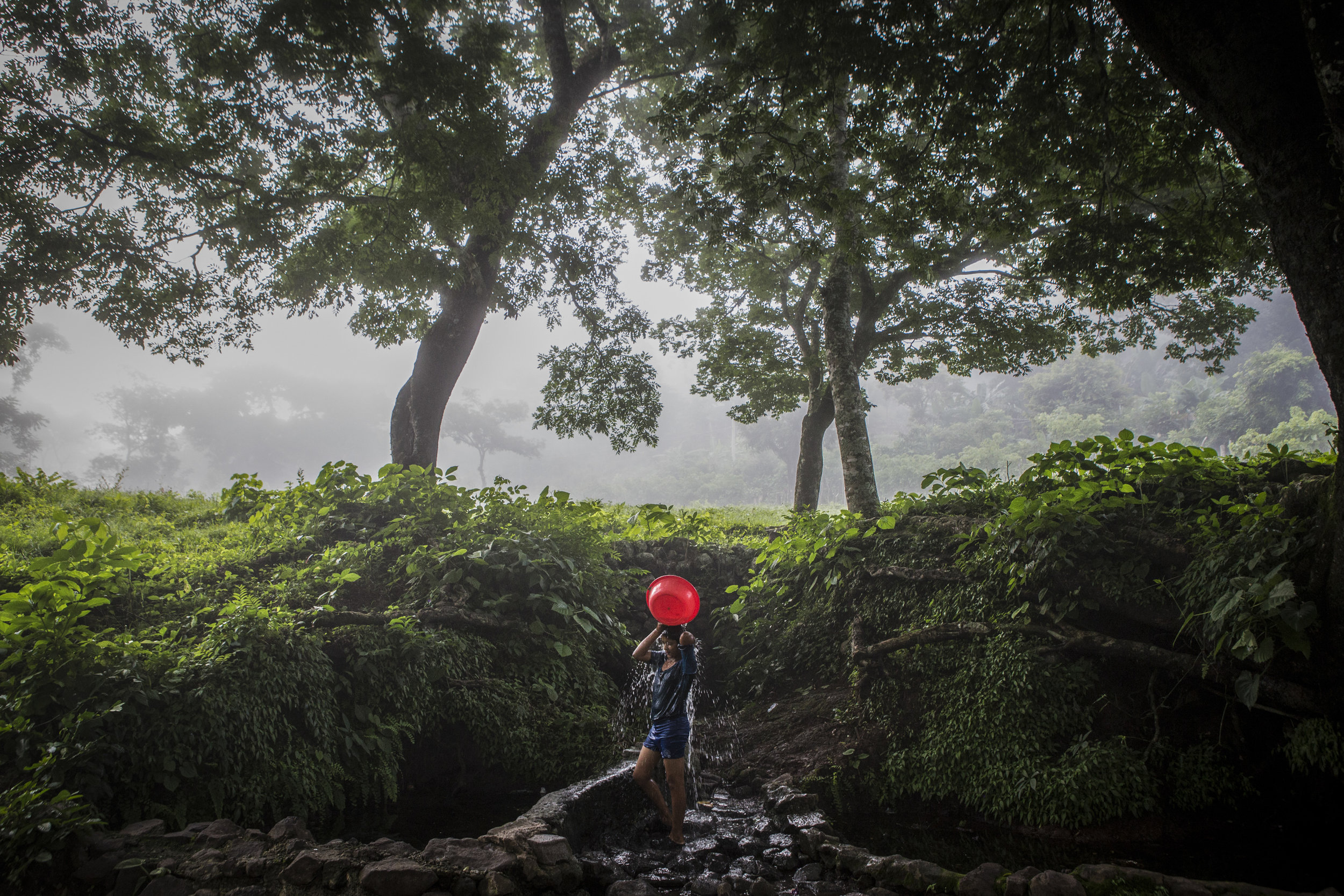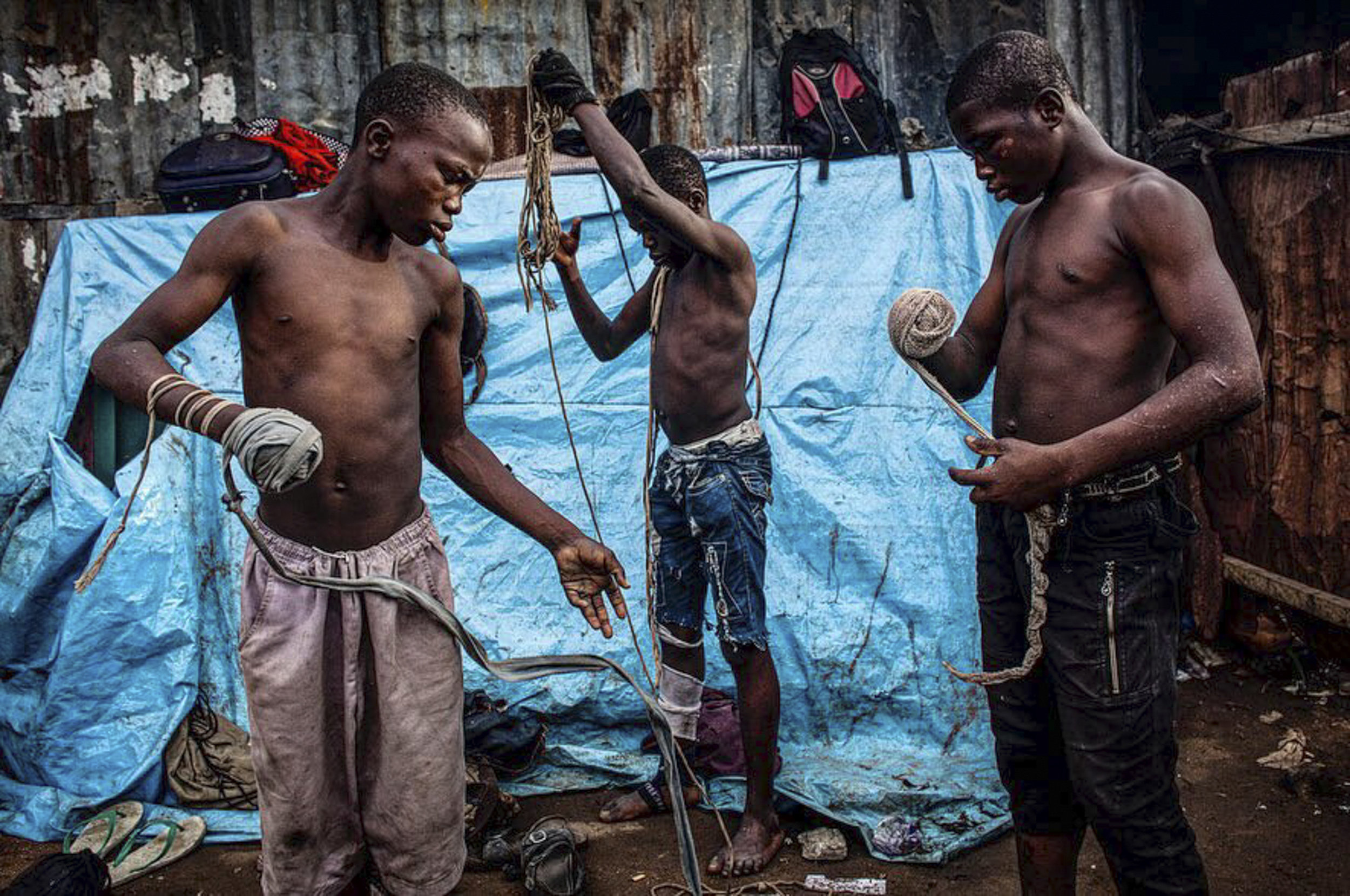Women Talk is a monthly conversation between a member of Women Photograph and Kerry Manders.
This month is Jane Hahn — a Korean-American photographer based in Senegal.
Bio. Offer us a short, snappy (not-copied-from-your-website or any publication), fun biography. Who are you?
I am a freelance photojournalist based in West Africa for over 12 years. I was born and raised in the United States but my parents are originally from Korea. My work focuses on news coverage and my personal projects on issues surrounding the environment, humanitarian crises, and health as well as the economy, travel, and sports. Even though I have focused mainly on West Africa for over a decade, my work has also taken me across Africa, Latin and South America, and Asia so far.
Beginning. Do you remember the first time you picked up a camera? The first picture you took? Tell us a story about your beginning.
I took the long road around and lived a few lives to get to where I am now. I first picked up a camera in high school for an elective photography class. I fell in love with making pictures, developing my own film, and experimenting in the darkroom, but I never thought of it as a viable career option (and I’m pretty sure my parents would have killed me at the time). So, I put the camera down and didn’t pick it back up again until my mid 20s after graduating college and moving to NYC. While working at the MoMA I decided to take a photography course in my down time, which was the first stage of my current path.
In the years that followed Sept 11, 2001, there was a growing sense of urgency to understand the world we lived in and to weed out the misinformation that was being fed to the public. Since I didn’t travel much in my youth, I felt the need to learn about the unfamiliar first hand and I found that using a camera helped open a doorway into the world beyond. The camera provides an excuse for a conversation; it’s a common language that almost everyone understands and can connect to.
Young Dambe boxers prepare for a match in Lagos, Nigeria. Dambe boxing originated among the Hausa Butchers Guild of Northern Nigeria but these days the sport can be found all across the country and beyond. In the past, members would fight in matches across the north during harvest and festival times as a test for bravery for the guild, honor for the family and village or a rite of passage for marriage.
Becoming. Can you identify when you first started calling yourself a photographer —when you felt comfortable naming yourself as such? How did you morph from someone who takes pictures to “photographer”?
It took a few years into my career for me to feel comfortable calling myself a photographer. I began my professional career in 2007 when I moved to West Africa in my late 20s. Since I was largely self-taught, with only few photography classes under my belt, I was really learning the business on the ground. I spent countless hours at internet cafes researching stories, connections, other photographers, ethics, etc. Once I started to work on my own stories in a way that was more structured, with purpose and vision, I began to see the difference between “taking pictures” and telling a story.
Borrowing. Tell us a little about your artistic lineage. Who are the artists and/or works that influence you? Who or what inspires you and why?
I’m very curious and find inspiration in the oddest places: friends and fellow storytellers, film and art, the sounds and smells of my surroundings. It’s about being open to the world around you, open to shared spaces and experiences. The most amazing ideas can come from random conversations with strangers. Sometimes it can just be a puzzle piece that’s been missing and sometimes it’s far more substantial.
Fissa, 33, sits on his bed under the framing for his thatched roof at his home in Perai Village, Gambia. Fissa, like many other men in his village plans to take the “Back Way” overland from The Gambia, through Senegal, Mali and Burkina Faso then Niger through the desert to Libya across the sea on to Europe hoping to find a way to provide for his immediate and extended family.
Between. Discuss the relationship between you and your subjects (whether people, objects, land). What is the nature of your relationship with the things you photograph or film?
Working mostly in news, I unfortunately don’t have the ability to spend days or weeks with the same people on most occasions. Sometimes I have a day, sometimes an hour, and sometimes only 20 minutes. It’s not ideal but it’s the nature of the work we do. I try not to take my camera out immediately and prefer to establish a bit of rapport before I begin to photograph. It’s a challenge but I hope that, in the time frame I have, I can create a feeling of trust between myself and who I’m photographing as well as the viewer. I try to involve who I’m photographing as much as possible in the process while trying to bridge the gap between the unknown and the familiar for the viewer so they can feel some kind of connection to a situation they are so far removed from.
Burden. What are some of the difficulties or challenges of being a woman who photographs?
Always being second-guessed is very frustrating. No matter how much experience I have, someone will always assume I don’t have knowledge that counts.
Living abroad also has many challenges. West Africa is largely patriarchal, so it’s not customary for a woman to live on her own. The simple everyday issues like dealing with my landlord or repairman or just running errands can be a challenge. It also makes me more of a target when it comes to crime. I am more vulnerable as a lone woman so I have to have my guard up at all times: it’s exhausting.
Aminata Conteh, 8, puts on a hospital gown before doctors remove fluid from her problematic right eye for testing at the Kissy United Methodist Church Eye Hospital in Freetown, Sierra Leone. Long after recovering from the largest Ebola outbreak in history, survivors continue to experience debilitating complications including uvetis, an inflammation of the eye, leading to severe cataracts leaving the survivor with little to no sight in the affected eye.
Beauty. What are some of the joys of being a woman who photographs?
Providing a different point of view, another line of questions, a different opinion that could open the story up in a new direction. It’s always beneficial having diverse perspectives, especially in storytelling.
We also have access to certain situations that men don’t, especially in Muslim countries. Women, who bare the brunt of humanitarian crises, are generally more candid with other women in the room and speak more freely than they would in front of men.
Balance. When you are not photographing, what are you doing that keeps you grounded? What (else) do you do for fun?
I’m terribly boring! The older I get the more time it takes to recharge my batteries. When I’m not working, I first take time to reconnect with myself and my personal, quiet space. Outside of that, I watch movies, eat plenty of pizza, spend time by the ocean, and run—but mostly to counteract all the pizza. I’m learning to include more self-care into my life but it’s not easy. I usually need to have multiple projects on the back burner to keep me sane but these days I’m forcing myself to turn off and enjoy my surroundings. I also have a great hammam and massage place, so getting scrubbed like a baby definitely helps feed the soul!
Best. What is the best piece of advice you’ve ever heard? (It doesn’t need to have been given to you personally or be about photography specifically).
“Avoid the puddle with no origin. It’s usually piss.” That was advice given to me by a colleague when I was 21, just before moving to NYC, long before photography was even on my radar. I feel like it applies literally or figuratively in many situations.
Best 2. What is the best advice you have to offer someone reading this?
Get it in writing. Get. It. In. Writing!
The daughter of a former Boko Haram commander plays between the chadors of their wives at a "safe house" in Maiduguri, Nigeria.
Jane Hahn: janehahn.com // @janehahn
Kerry Manders: kerrymanders.com // @kerrymmanders






